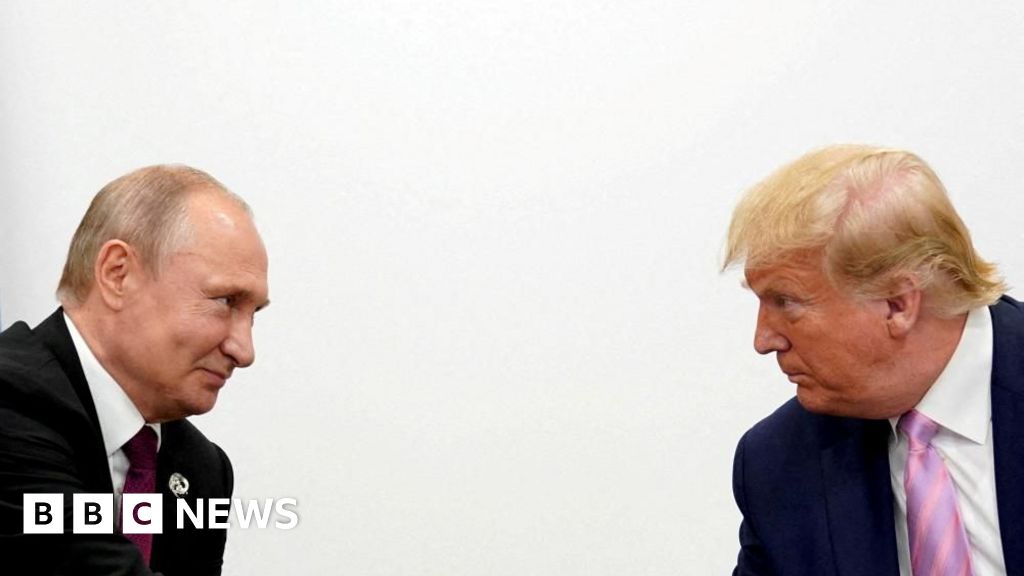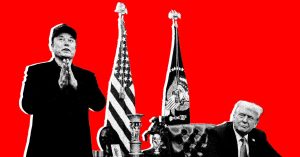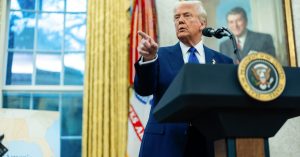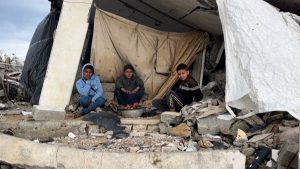International Editor

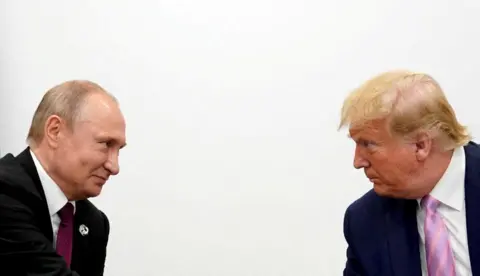 Reuters
ReutersAmerica is under new management. Ukraine’s President Volodymyr Zelensky is joining a growing list of US allies who are finding that the world according to Donald Trump is a colder, more uncertain and potentially more dangerous place for them.
It must have been bad enough for Zelensky to hear Trump’s abrupt announcement that he had welcomed Russia’s President Vladimir Putin back to international diplomacy with a 90-minute phone call, to be followed by a face-to-face meeting, perhaps in Saudi Arabia.
After Putin, the White House dialled up Zelensky’s number. Speaking to journalists in Ukraine the morning after, Zelensky accepted the fact that Putin received the first call, “although to be honest, it’s not very pleasant”.
What stung Zelensky more was that Trump, who rang him after he spoke to Putin, seemed to regard him, at best, as a junior adjunct to any peace talks. One of Zelensky’s many nightmares must be the prospect of Trump and Putin attempting to settle Ukraine’s future without anyone else in the negotiation.
He told the journalists that Ukraine “will not be able to accept any agreements” made without its involvement.
It was vital, he said, that “everything does not go according to Putin’s plan, in which he wants to do everything to make his negotiations bilateral”.

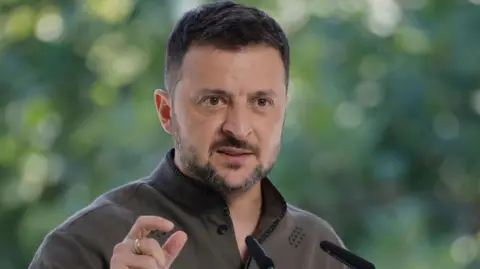 EPA
EPAPresident Zelensky is heading to the Munich security conference, starting on Friday, where he will attempt to rally Ukraine’s allies. He faces a tough meeting with Trump’s vice president, JD Vance, who was one of the sternest critics of Joe Biden’s aid to Ukraine.
The argument Zelensky will hear from the Americans is that Ukraine is losing and it needs to get real about what happens next. He will argue that Ukraine can win – with the right backing.
The European Union is worried too. After meeting and praising the Ukrainian defence minister Rustem Umerov, the EU foreign policy chief Kaja Kallas posted that Europe must have a central role in any negotiation. “Our priority now must be strengthening Ukraine and providing robust security guarantees,” Kallas said.

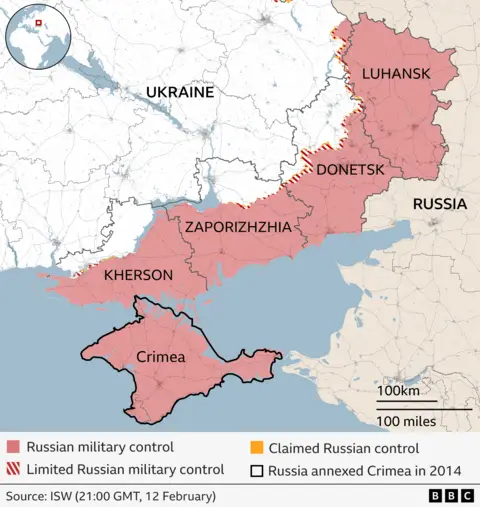
Zelensky is painfully aware that while his European allies are sounding much more steadfast than the Americans, the US remains the world’s strongest military power. He told the Guardian last week that “security guarantees without America are not real security guarantees”.
Collectively, European allies have given Ukraine more money than the US. But the Americans have weapons and air defence systems – like the Patriot missile batteries that protect Kyiv – that Europeans simply cannot provide.
Putin will be delighted that he is getting a much easier ride than he had from Biden. The former US president called Putin, among other things, a “pure thug”, a “brutal tyrant” and a “murderous dictator” and cut off contact after Russia’s full-scale invasion of Ukraine in February 2022.
Just to drive home the point that everything had changed, Trump followed up yesterday’s positive assessment of his talk with Putin with an upbeat early morning post on his platform, Truth Social, reflecting on “great talks with Russia and Ukraine yesterday”. There was now a “good possibility of ending that horrible, very bloody war!!!”
Putin is not just back in conversation with the most powerful country in the world. With Trump, he may now see himself as the arbiter of the endgame in the war he started when he broke international law with the all-out invasion of Ukraine almost exactly three years ago.
At the White House, Trump seemed to suggest that the huge numbers of dead and wounded in the Russian military gave some kind of legitimacy to Putin’s demand to keep the land captured and annexed by Russia.
“They took a lot of land and they fought for that land,” Trump said. As for Ukraine, “some of it will come back”.

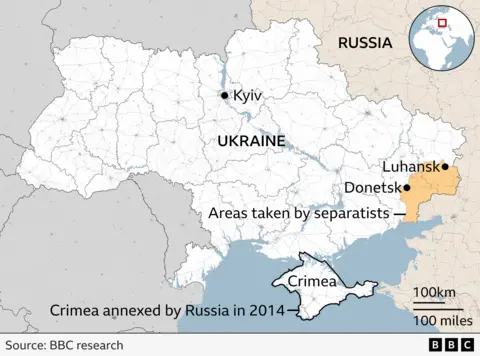
His defence secretary Pete Hegseth’s remarks at a Nato meeting in Brussels were more direct. He wanted Ukraine to be “sovereign and prosperous”. But “we must start by recognising that returning to Ukraine’s pre-2014 borders is an unrealistic objective”.
“Chasing this illusionary goal will only prolong the war and cause more suffering.”
Trump is still at the easy end of what could become an impossibly tough diplomatic challenge. Boasting that he has the key to ending the Russo-Ukraine war is one thing. Making that happen is something else.
His declaration before any talks with Russia start that Ukraine will not join Nato nor get back all its occupied land has been widely criticised as a poor start by a man who claims to be the world’s best dealmaker.
The veteran Swedish diplomat and politician Carl Bildt posted an ironic rebuke on X.
“It’s certainly an innovative approach to a negotiation to make very major concessions even before they have started. Not even Chamberlain went that low in 1938. That Munich ended very bad anyhow.”
Bildt posted a photo of Britain’s then prime minister Neville Chamberlain on his return from Munich in 1938, waving the notorious and worthless agreement he had made with Adolf Hitler – the price of which was the capitulation and break-up of Czechoslovakia and a faster slide towards a second world war.
After the full-scale invasion of Ukraine in 2022, Vladimir Putin was widely portrayed in the west as the new threat to European peace. Trump’s approach to him is very different.
He will have to try to bridge the gap between Putin and Zelensky’s positions, which are polar opposites.

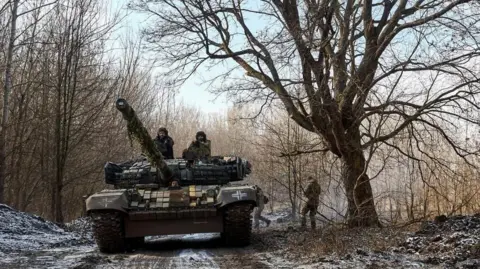 EPA
EPAZelensky’s declared objective is to regain Ukraine’s lost territory, which amounts to around a fifth of its total land mass. He also wants Ukraine to become a full member of Nato.
Putin insists that any peace deal would require Ukraine to give up the land Russia has captured, as well as areas it has not occupied, including the city of Zaporizhzhia which has a population of more than half a million. Ukraine would also become neutral, demilitarised and would never join Nato.
Ukraine’s demands will not be acceptable to Moscow, and Trump has indicated he doesn’t like them either.
But Russia’s amount to an ultimatum, not a serious peace proposal. Trump, once a developer, likes deals that involve tangible real estate. But Putin wants more than land. He wants Ukraine to go back to the relationship it had with the Kremlin during the days when it was part of the Soviet Union. For that to happen, Ukraine would have to lose its independence and sovereignty.
Biden offered Ukraine enough not to lose, because he took Putin’s threats to use nuclear weapons if Nato intervened seriously. Trump must be aware of nuclear danger, but he also believes backing Ukraine indefinitely is a bad deal for the US, and he can do better.
As for the Europeans, he might force them to face up to the gross disparity between their military promises to Ukraine and their military capabilities. Only Poland and the Baltic states are backing their public statements about the threat from Russia with qualitatively increased defence spending.
With Russia grinding forward on the battlefields of eastern Ukraine, this is the toughest moment Zelensky will have faced since the dark and desperate first months of the war, when Ukraine fought off Russia’s attack on Kyiv.
It is also a moment of decision for his western allies. They face tough choices that cannot be put off much longer.



